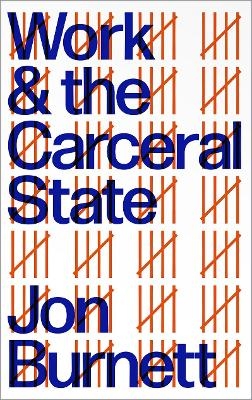
Work and the Carceral State
Seiten
2022
Pluto Press (Verlag)
978-0-7453-4016-6 (ISBN)
Pluto Press (Verlag)
978-0-7453-4016-6 (ISBN)
The politics of punishment meet labour exploitation in this new analysis
'Revolutionises our understanding of the carceral state' - Fidelis Chebe, Director of Migrant Action
During 2019-20 in England and Wales, over 17 million hours of labour were carried out by more than 12,500 people incarcerated in prisons, while many people in immigration removal centres also worked. In many cases, such workers constitute a sub-waged, captive workforce who are discarded by the state when done with.
Work and the Carceral State examines these forms of work as part of a broader exploration of the relationship between criminalisation, criminal justice, immigration policy and labour, tracing their lineage through the histories of transportation and banishment, of houses of correction and prisons, to the contemporary production of work.
Criminalisation has been used to enforce work and to discipline labour throughout the history of England and Wales. This book demands that we recognise the carceral state as operating at the frontier of labour control in the 21st century.
'Revolutionises our understanding of the carceral state' - Fidelis Chebe, Director of Migrant Action
During 2019-20 in England and Wales, over 17 million hours of labour were carried out by more than 12,500 people incarcerated in prisons, while many people in immigration removal centres also worked. In many cases, such workers constitute a sub-waged, captive workforce who are discarded by the state when done with.
Work and the Carceral State examines these forms of work as part of a broader exploration of the relationship between criminalisation, criminal justice, immigration policy and labour, tracing their lineage through the histories of transportation and banishment, of houses of correction and prisons, to the contemporary production of work.
Criminalisation has been used to enforce work and to discipline labour throughout the history of England and Wales. This book demands that we recognise the carceral state as operating at the frontier of labour control in the 21st century.
Jon Burnett is a Lecturer in Criminology at the University of Swansea. He has written for a variety of publications including the Guardian, Race & Class and Open Democracy. He is the co-editor of the journal Justice, Power and Resistance.
Tables and Figures
Acknowledgements
Introduction
1. Labour Discipline and Reform
2. The Immigration Detention Estate
3. Carceral Haunting
4. Political Anatomies of Labour
5. Labour Control Regimes
Conclusion
Appendix: Methodological Note
Notes
Index
| Erscheinungsdatum | 10.01.2022 |
|---|---|
| Zusatzinfo | 1 Tables, black and white; 3 Figures |
| Verlagsort | London |
| Sprache | englisch |
| Maße | 135 x 215 mm |
| Gewicht | 234 g |
| Themenwelt | Recht / Steuern ► Strafrecht ► Kriminologie |
| Sozialwissenschaften ► Soziologie ► Mikrosoziologie | |
| Wirtschaft ► Volkswirtschaftslehre ► Makroökonomie | |
| ISBN-10 | 0-7453-4016-4 / 0745340164 |
| ISBN-13 | 978-0-7453-4016-6 / 9780745340166 |
| Zustand | Neuware |
| Haben Sie eine Frage zum Produkt? |
Mehr entdecken
aus dem Bereich
aus dem Bereich
wie wir unsere Mimik und verborgene Körpersignale entschlüsseln
Buch | Hardcover (2022)
Droemer (Verlag)
CHF 27,95


